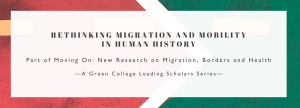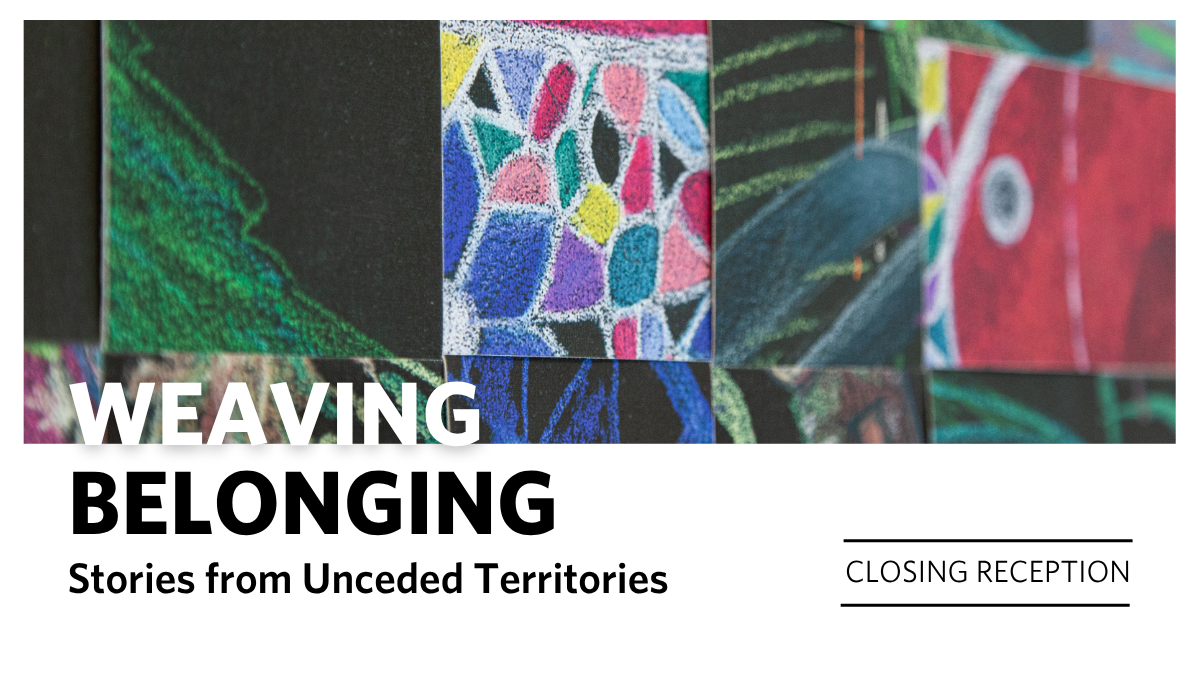RETHINKING MIGRATION AND MOBILITY IN HUMAN HISTORY
A book launch for the edited volume Homo Migrans: Modeling Mobility and Migration in Human History, in conjunction with the Green College Leading Scholars Series, Moving On: New Research on Migration, Borders, and Health and the Mobilities Research Group at the Centre for Migration Studies.


Date: Tuesday, March 7, 2023
Time: 11:30 am – 2:00 pm (PT)
Livestream link:
https://ubc.ca.panopto.com/Panopto/Pages/Viewer.aspx?id=efd6b41f-d0ab-47f5-ba1d-afb101763fcd
To ask a question:
1. Open www.slido.com in another tab or window
2. Enter event code: 102023
3. Type your question
Understanding how (and why) humans have migrated around the globe has proved to be one of the great challenges for the humanities and social sciences. This challenge is demonstrated through the ways in which European scholars conceived of and employed migration as a tool to explain human progress over the nineteenth and twentieth centuries. This history of scholarship has had serious consequences for modern ideas about human movement and cultural purity, particularly in light of new scientific tools for modeling and characterizing migrations like isotope analylsis, computational sciences, and genomic sequencing. This book launch will highlight some of these challenges that we continue to face as archaeologists and historians in evolving models that responsibly incorporate method, theory, and data in ways that honour the complexity of human behaviours and relationships. Contributors to this talk include the volume editor, contributing writers, and other scholars working on ancient migration.
This event is co-sponsored by the Mobilities Research Group in the Centre for Migration Studies, UBC.
Megan Daniels is Assistant Professor of ancient Greek material culture in the Department of Ancient Mediterranean and Near Eastern Studies at the University of British Columbia. She is interested in cross-disciplinary approaches to the ancient world, and has a forthcoming co-edited volume on data science and social sciences approaches to ancient Mediterranean (2023) religion and another edited volume on interdisciplinary approaches to ancient migration and mobility (2022). Her current book project is a study of the evolution of divine kingship over the Late Bronze and Iron Ages in the eastern Mediterranean. As a field archaeologist she has been involved in projects in Canada, Bermuda, Greece, Macedonia, Italy, Turkey and Tunisia.
Aurora E. Camaño (she/her) is a PhD Candidate in the Department of Archaeology and a graduate member of the Stavros Niarchos Foundation Centre for Hellenic Studies at Simon Fraser University. Her current research centres on questions of identity, memory, place-attachment and uses of restorative nostalgia in medieval Armenian Cilicia. Aurora is also an active field archaeologist who has worked on a variety of projects across Turkey, Armenia, North Macedonia, the United Kingdom and Canada.
Franco De Angelis is Professor and Distinguished University Scholar in the Department of Ancient Mediterranean and Near Eastern Studies at the University of British Columbia. He has developed cross-cultural, interdisciplinary methodologies that employ not only all forms of ancient source, particularly archaeology (often the only form of contemporary evidence), but also a robust arsenal of theoretical tools to interpret this highly varied source base. Putting this into the context of his research, he has been able to expand the narrow story we have traditionally told about the ancient Greeks by addressing their overlooked mobilities and migrations prior to the conquests of Alexander the Great, which represented, literally, the other half of ancient Greece’s population. Answering why this other half of ancient Greece has been given short shrift in modern historical accounts has also required considering ancient and modern historiography, to address the role of such factors as nationalism and Eurocentrism in suppressing narratives, as well as the nature of historical writing amongst the ancient Greeks.
Greg Woolf is Ronald J. Mellor Distinguished Professor of Ancient History in the Departments of History and Classics at UCLA. Before moving to the US in 2021, he served as Director of the Institute of Classical Studies in the University of London and before that was Professor at the University of St Andrews in Scotland. Before that he was educated and taught at the Universities of Oxford and Cambridge. His interests range across the economic, social and cultural history of the Roman world and his most recent book is The Life and Death of Ancient Cities: A Natural History. He has held visiting positions in Brazil, France, Germany, Italy and Spain. He is currently editor-in-chief of the Journal of Roman Archaeology.
